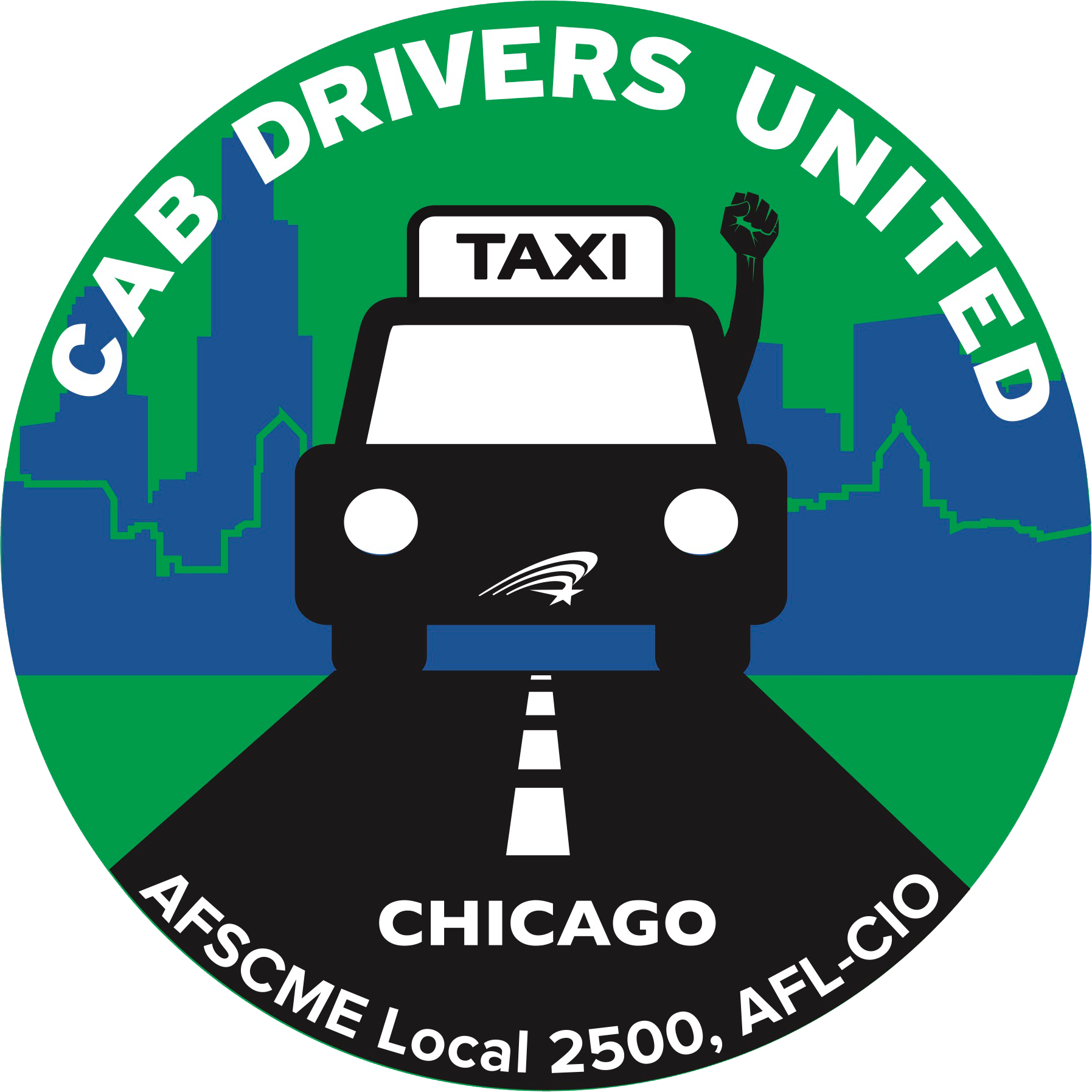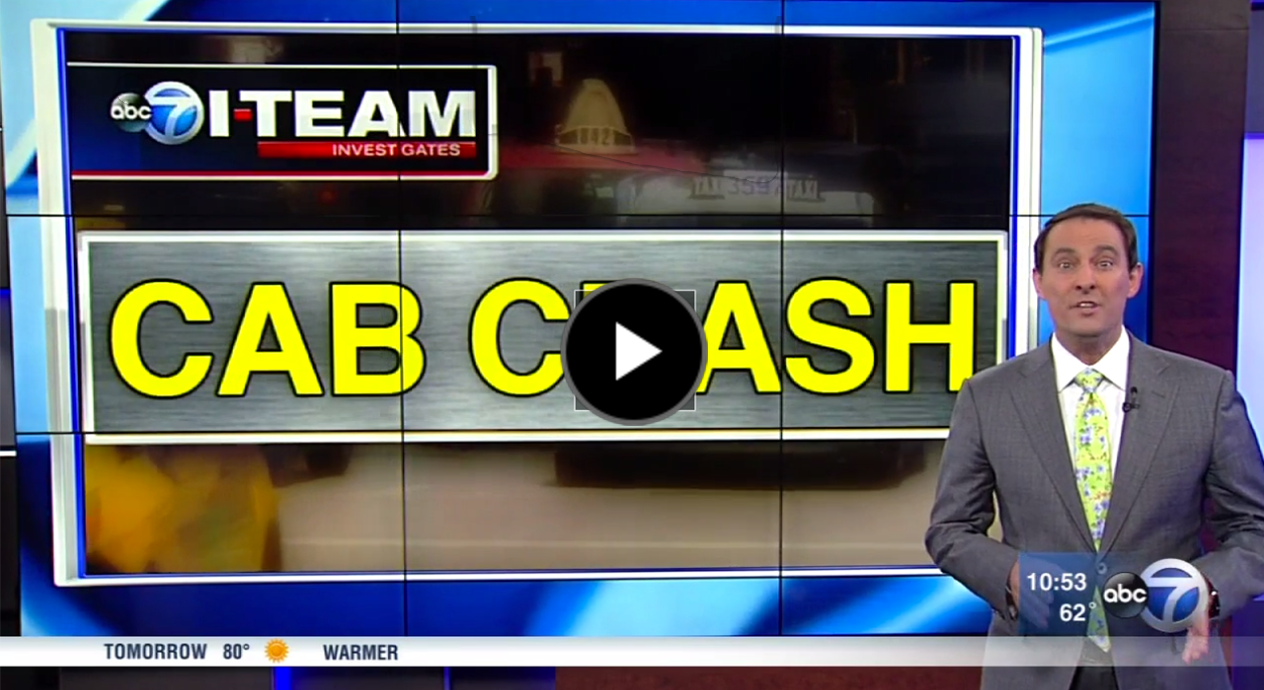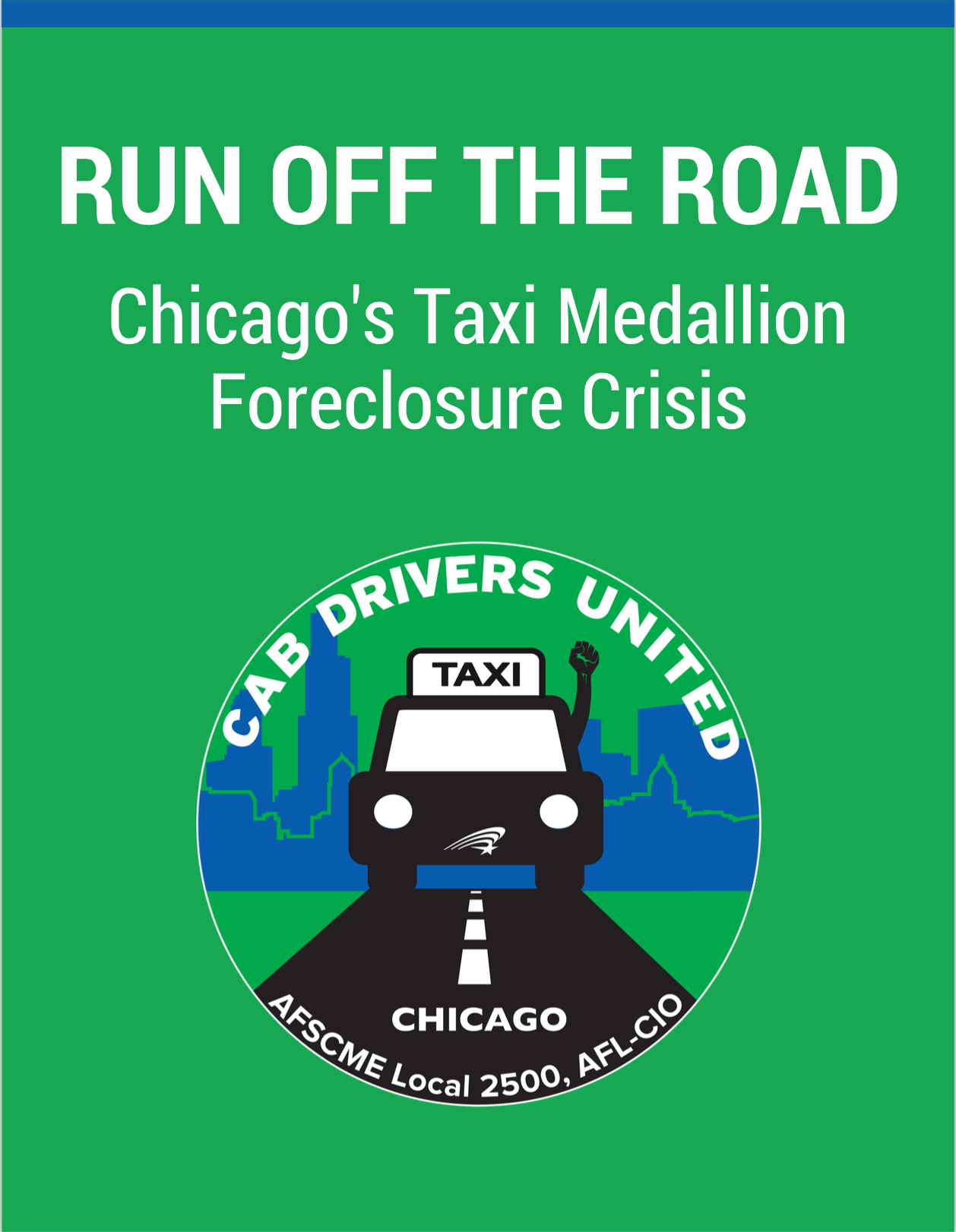CHICAGO – To highlight the growing foreclosure crisis facing Chicago’s 2,000 small business owners who own and operate taxis, Cab Drivers United/AFSCME Local 2500 released a report this week detailing ways to help save taxi service in the Windy City.
In June 2014, the City of Chicago enacted a two-tier regulatory system that opened the taxi market to tens of thousands of for-hire vehicles in the form of rideshare. This created unfair competition between rideshare operators like Uber and Lyft, and cab drivers, many of whom invested in medallions – licenses issued by the city to operate cabs.
In 2012, medallions sold for more than $350,000, but competition from rideshare companies has caused the value of medallions to plummet, reported CBS Chicago.
Unable to keep up with loan payments and saddled with high operating costs, hundreds of taxi owner/operators face foreclosure on their medallions. Thousands more are likely to face the same fate unless the city – home to the nation’s second-largest taxi fleet – takes serious action to reduce the burden on small taxi owners.
Solutions to the Crisis
According to the Cab Drivers United/AFSCME Local 2500 report, Run Off the Road: Chicago's Taxi Medallion Foreclosure Crisis, more than 40 percent of Chicago’s taxi fleet was inactive this March. Trip revenue has fallen nearly 40 percent over the last three years, with the average net income per medallion falling from $19,000 in 2013 to a loss of $4,000 in 2016.
The report offers many proposals that can be enacted by city officials to prevent a collapse of the medallion market and taxi industry. Among them:
- Waive ground transportation taxes for struggling owner/drivers.
- Amend the medallion owner code to eliminate vehicle age/change of equipment requirements (as long as the vehicle passes city inspection).
- Eliminate medallion license renewal fee ($1,000 for two years).
Personal Stories
Among the affected cab owner/operators are John Aikins and his wife, who purchased two medallions, including one five years ago for $330,000. They viewed it as a good investment at the time. When the bubble burst, they couldn’t find a dependable driver for the second medallion and fell behind on their loans and have since filed for bankruptcy.
“I don’t blame Uber or Lyft for coming in,” Aikins told the Chicago Sun-Times. “But the city has been so unfair, it’s beyond belief. Ride-sharing companies come in and the city didn’t do anything [while] we are following the same stringent rules and regulations and taxes.”
Fellow driver Stacy Fendrick spent 50 years driving a cab, and saved enough money to buy a medallion and later, a second. He saw these as his nest eggs. Now, after filing for bankruptcy, Fendrick is left with the cab to use as a personal vehicle, his medallion number long stripped off the car.
“This is terrible, when you have to get out of business and you have been in business. I am old, but there are younger people out there that have put money in these cabs,” Fendrick told ABC 7 Chicago.


